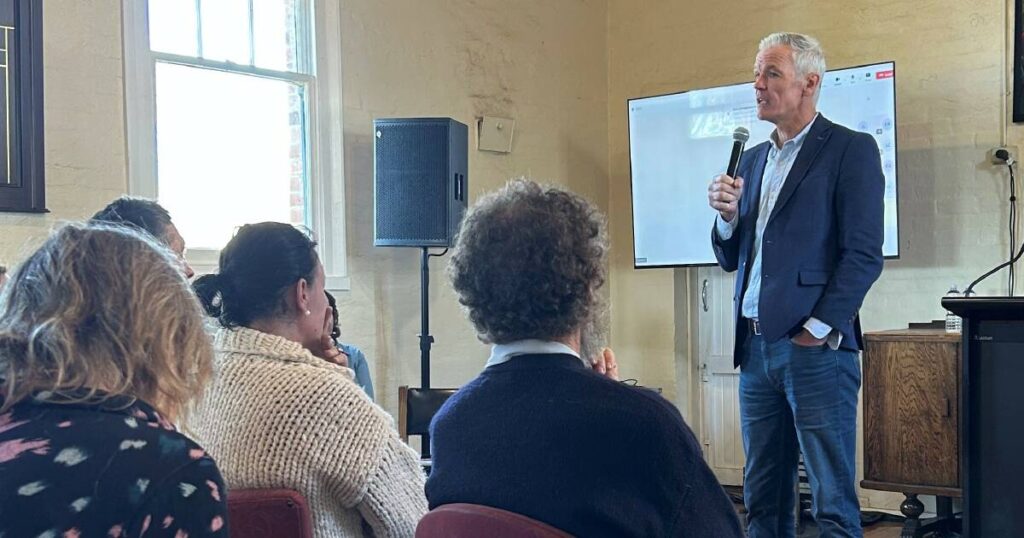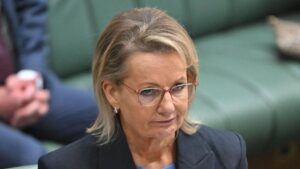
Communities across Australia are voicing increasing dissatisfaction with the renewable energy sector, prompting the Australian Energy Infrastructure Commissioner, Tony Mahar, to emphasize the need for improved engagement. The 2024 AEIC annual report revealed that the office closed 155 cases and opened 152 new cases related to community concerns about large-scale renewable projects. This trend marks a significant rise in complaints, highlighting ongoing issues with community involvement and project transparency.
Since 2015, the number of issues raised by community members has steadily increased. In 2023, the office received 149 complaints, up from 87 in 2022. Mahar identified social license and local engagement as primary concerns, alongside issues such as planning processes, safety, and the impact of renewable projects on agricultural land.
“Through cases and direct community engagement, we hear a recurring theme of a sense of communities not being informed, respected and, at worst, being patronised,” Mahar stated. “This tells us that proponents still have a long way to go.”
In the latest report, community engagement issues accounted for 70 of the 152 new cases, followed by safety concerns related to natural environments and amenity issues such as noise and visual impact from larger solar farms and taller wind turbines. Wind farms represented the largest percentage of complaints, with 66 percent of cases, while solar farms comprised 12 percent and transmission activities 11 percent.
Mahar noted an evolving landscape in community concerns, with a shift from numerous complaints about a single proposal to a broader range of issues across various projects. Some companies have attempted to address this by proactively sharing information about new proposals, aiming to alleviate community concerns and avoid the spread of misinformation.
The report also criticized regulatory bodies for their role in community dissatisfaction. Mahar argued that simply opening a portal for public comments during the approval process is insufficient. He stressed the importance of clear public guidance and timely responses to community inquiries.
“Drawn-out planning processes, especially when they vary between jurisdictions, contribute to community fatigue and disengagement,” he explained. “Conversely, some ‘fast track’ approval processes are seen as lacking robustness, giving the impression that projects are already decided.”
The Australian Energy Infrastructure Commissioner’s office marked its 1000th case in 2024, making it the third busiest year since its establishment in 2015. Mahar acknowledged that although some constructive outcomes are being achieved, significant community concerns persist, highlighting the need for ongoing improvements in engagement practices.
“Land access is sometimes mishandled, leading to feelings of lost control over property and diminished confidence due to preventable issues,” he stated, referencing problems such as improperly secured gates.
Most complaints in 2024 originated from Victoria, and the three commissioners conducted over 330 stakeholder meetings throughout the year. A review by former commissioner Andrew Dyer released in February outlined community engagement deficiencies in the transition from coal-fired power to renewables, with the government accepting all nine recommendations.
In light of these challenges, the Clean Energy Council has urged the renewable industry to “redouble” efforts to secure community support. The VNI West project, a crucial initiative aimed at connecting solar and wind infrastructure in Victoria and New South Wales to the energy grid, has also faced delays due to ongoing negotiations over property access issues.
As the government strives to achieve 82 percent renewable energy in the grid by 2030 and reach net-zero emissions by 2050, Climate Change and Energy Minister Chris Bowen has announced an expansion of taxpayer-backed renewable projects. The call for enhanced community engagement reflects a critical turning point in the renewable energy sector, as stakeholders recognize the importance of building trust and collaboration with local populations.






